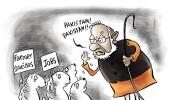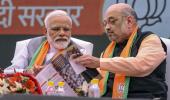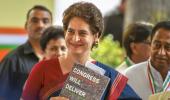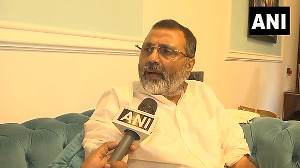'If an election promise has to be credible, silence on practical questions doesn't help matters,' notes T N Ninan.
Illustration: Uttam Ghosh/Rediff.com
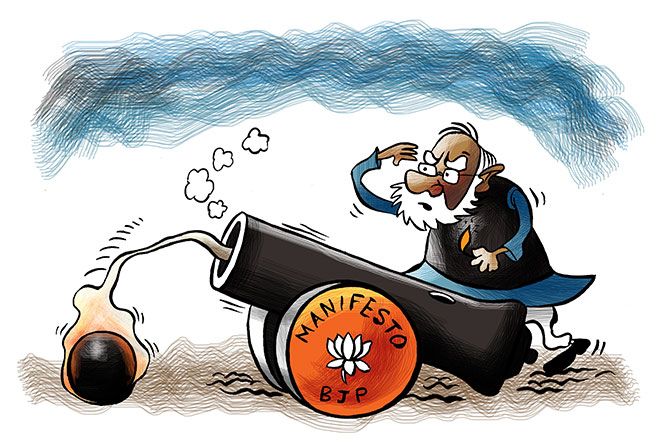
While no election is over till the last vote is counted, the virtually uniform findings of opinion polls suggest that the Bharatiya Janata Party will return to power, probably as the largest plurality and as part of a coalition.
The party's election manifesto therefore deserves close scrutiny, especially since many of the promises made in the 2014 manifesto have guided the Modi government's actions since -- whether it is the thrust on digitisation and technology-based solutions, Swachh Bharat or cow protection.
An important feature of the Narendra Damodardas Modi approach to development is the focus on output rather than outcomes.
Output is the number of railway lines electrified; outcome would be its impact on the speed and volume of railway freight and passenger traffic.
Output would be the number of Jan Dhan accounts opened, outcome would be the number of transactions that actually take place in those accounts.
This is not to decry change in output -- the pace of highway construction has made a difference to the country, obviously. Indeed, the Congress promise of filling 1.4 million vacant posts is a case of input without mention of output, let alone outcomes.
But it should be obvious that output is not enough if it does not change outcomes -- so not just number of teachers or doctors (both are needed) but the impact on literacy and life expectancy, on which Bangladesh is now ahead of India. The UN's Sustainable Development Goals is a useful example as it focuses on outcomes.
From this perspective, the manifesto is full of promises that have to do with output: Start 75 new medical colleges, establish a National Traders Welfare Board, achieve 10 per cent blending of ethanol in petrol, and so on.
The focus on outcomes is in comparison a minor theme. When outcome targets are stated, they are so ambitious as to suggest little underlying analysis, or are simply unrealistic (double farmers'S incomes by 2022).
This is mentally lazy work. A serious attempt to take GDP from $2.7 trillion in 2018 to $5 trillion by 2025, as is promised, would involve achieving annual growth of over 9 per cent.
What would it take to deliver this, especially when the manifesto points out that 7.3 per cent annual growth over the past five years is the fastest till now? There is no answer.
The promise of making the country a manufacturing hub was held out in 2014, and is being held out again. So what different will be done to make the future deviate from the past? Or, how will exports be doubled in the next five years when the last five have seen the slowest growth of merchandise exports in perhaps four decades?
The related feature of the manifesto is that, amidst its dozens of output targets and government programmes, there is little attention to policy. This anti-policy bias has been a feature of the Modi government, and the manifesto offers no change.
There are good reasons why neither exports nor manufacturing has been a success story over the last five years; and why agriculture is a distress story.
If those reasons are not spelt out and addressed, a manifesto falls short.
Indian agriculture has moved from shortages to surpluses, but policy has not changed focus to facilitating agricultural exports or finding other ways to deal with surpluses-through food processing or crop diversification.
If this is not understood, depressed prices for farm output cannot be given a boost. Promising interest-free loans to farmers, as the BJP does, is not an answer.
You could argue that a manifesto can spell out only so much, and in any case it is not a think tank monograph. That was precisely the response of a Congressman when asked for the details of how its big hand-out programme would work in practice.
But if an election promise has to be credible, especially when it lays out a big spending package or seeks to deliver a change on the past record, silence on practical questions or on key policy issues does not help.


